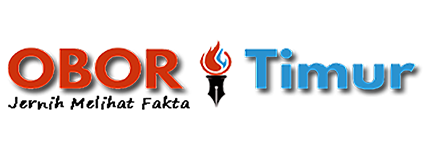As the focus shifts to maximizing return on investment for property owners, this introduction invites readers to delve into a realm of valuable insights and practical advice. The discussion is crafted to offer a comprehensive look at various strategies, techniques, and management practices aimed at enhancing ROI in the property market.
The subsequent paragraph will delve into the specifics, providing a detailed overview of the key aspects surrounding this crucial topic.
Strategies to Maximize Return on Investment
Property owners have several strategies at their disposal to maximize their return on investment. These strategies vary in terms of benefits, challenges, and timeline for seeing results.
Renovations and Upgrades
One common strategy is to invest in renovations and upgrades to increase the property's value. This can include updating kitchens and bathrooms, adding modern amenities, or improving curb appeal. While renovations can lead to higher rental or resale value, they also come with costs and potential delays.
Short-Term Rentals
Another strategy is to focus on short-term rentals, such as through platforms like Airbnb. This can generate higher rental income compared to traditional long-term leases. However, short-term rentals may require more hands-on management and can be affected by seasonality.
Long-Term Leases
On the other hand, opting for long-term leases provides stability and consistent rental income. Property owners can benefit from reliable tenants and reduced turnover costs. However, long-term leases may limit rental income potential compared to short-term rentals.
Property Management Services
Hiring a property management company can help maximize ROI by handling day-to-day operations, tenant screening, maintenance, and rent collection. While this can save time and effort for property owners, it comes with management fees that can eat into profits.
Property Improvement Techniques
When it comes to maximizing return on investment for property owners, implementing property improvement techniques can significantly increase property value and ROI. Renovations, upgrades, and regular maintenance are key factors that can impact the overall return on investment for a property.
By investing in cost-effective improvements, property owners can yield high returns and enhance the attractiveness of their property to potential buyers or renters.
Renovations and Upgrades
Renovations and upgrades play a crucial role in increasing property value and ROI. Investing in modernizing the kitchen or bathroom, updating flooring, installing energy-efficient appliances, or adding smart home technology are examples of renovations that can significantly enhance the appeal and value of a property.
By staying up-to-date with current design trends and incorporating sought-after features, property owners can command higher rental or resale prices, ultimately maximizing their return on investment.
Maintenance and Repairs
Regular maintenance and timely repairs are essential for preserving the condition of a property and maximizing its value over time. Simple tasks such as fixing leaky faucets, repairing damaged walls, replacing worn-out carpeting, or maintaining the landscaping can go a long way in enhancing the overall appeal of a property.
By addressing maintenance issues promptly and keeping the property in good condition, property owners can prevent potential devaluation and attract quality tenants or buyers, ultimately leading to a higher return on investment.
Cost-Effective Improvements
Not all property improvements require a significant financial investment to yield high returns. Simple and cost-effective upgrades such as a fresh coat of paint, updating light fixtures, enhancing curb appeal with landscaping, or adding storage solutions can make a big impact on the perceived value of a property.
These minor improvements can enhance the overall aesthetic appeal of the property without breaking the bank, making them an attractive option for property owners looking to maximize their return on investment without overspending
.
Rental Property Management
Effective rental property management plays a crucial role in maximizing return on investment for property owners. By implementing best practices and strategies, property owners can attract and retain tenants, ultimately increasing their ROI.
Importance of Effective Rental Property Management
Proper rental property management ensures that properties are well-maintained, tenants are satisfied, and rental income is maximized. This leads to higher occupancy rates, reduced vacancies, and ultimately, a greater return on investment.
Best Practices for Attracting and Retaining Tenants
- Regularly maintain and upgrade the property to attract high-quality tenants.
- Offer competitive rental rates and incentives to retain tenants for longer durations.
- Provide excellent customer service and respond promptly to tenant needs and concerns.
- Implement effective marketing strategies to reach a wider pool of potential tenants.
Comparison of Property Management Approaches
There are different property management approaches that can impact ROI in various ways. For example, self-managing properties may save costs but require more time and effort, while hiring a professional property management company can provide expertise and convenience but come at a higher cost.
Property owners must weigh the pros and cons of each approach to determine the best fit for their investment goals.
Market Analysis and Trends
Market analysis and trends play a crucial role in maximizing return on investment for property owners. By understanding the current market conditions and predicting future trends, property owners can make informed decisions to optimize their ROI.
Significance of Market Analysis
Market analysis helps property owners gauge the demand and supply dynamics in the real estate market. By analyzing factors such as property prices, rental rates, vacancy rates, and economic indicators, property owners can identify opportunities to maximize their returns. It also allows them to stay competitive and adapt to changing market conditions.
Influence of Market Conditions on Investment Decisions
Market conditions like interest rates, economic growth, and demographic shifts can significantly impact investment decisions. For instance, a booming economy may lead to increased demand for rental properties, while a recession may result in higher vacancy rates. Property owners need to consider these factors when making investment decisions to ensure they are maximizing their ROI.
Adapting to Changing Market Trends
To optimize ROI, property owners must be proactive in adapting to changing market trends. This can involve renovating properties to meet current market demands, adjusting rental rates based on market conditions, or diversifying their portfolio to mitigate risks. By staying informed and flexible, property owners can position themselves to take advantage of emerging opportunities and maximize their returns.
Final Summary
In conclusion, the journey through strategies, techniques, and management practices to maximize return on investment for property owners unveils a roadmap to success in the dynamic real estate landscape. By leveraging the right approaches and staying attuned to market trends, property owners can navigate towards greater profitability and sustained growth.
FAQ Guide
What are some cost-effective property improvement techniques that can yield high returns?
Examples include upgrading kitchens and bathrooms, enhancing curb appeal, and investing in energy-efficient upgrades.
How can effective rental property management contribute to maximizing ROI?
Effective management can lead to reduced vacancies, timely rent collection, and proper maintenance, ultimately boosting profitability.
What role does market analysis play in optimizing ROI for property owners?
Market analysis helps property owners understand demand, pricing trends, and investment opportunities, allowing them to make informed decisions.













